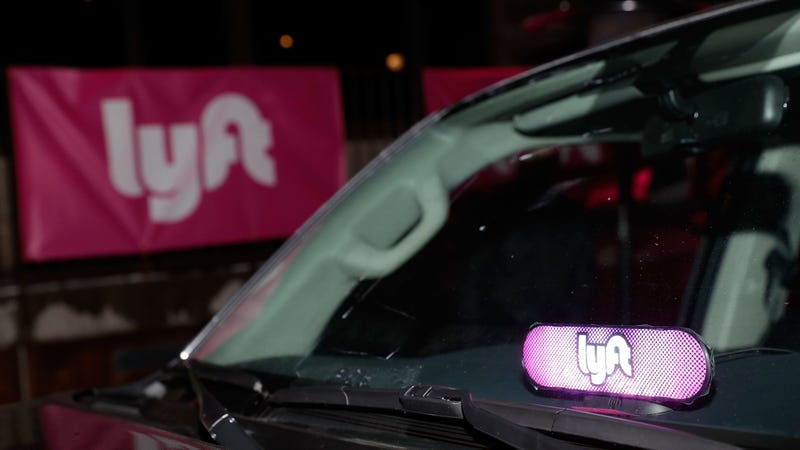 Photo: Isaac Brekken (Getty)
Photo: Isaac Brekken (Getty)
Lyft finally filed for an IPO on Friday, a long-expected move for the ride-sharing company that has been racing to beat its larger competitor Uber to the public-offering punch.
Aiming for a $20 billion valuation, Lyft’s newly filed IPO prospectus claims 39 percent of the U.S. ride-share market, a 17 percent jump in two years. Almost all of the rest of the market belongs to Uber. A little side note that the company would probably like us all to ignore: Lyft lost nearly $1 billion in 2018, according to the filing. Will public investors be as patient without profits as the company’s private investors have been?
The San Francisco-based company, one of almost a dozen Silicon Valley firms aiming to IPO this year, spent much of its IPO filing boasting about how important drivers are for the company, but it spent a fair bit more space outlining how the key to Lyft’s future is the plan to launch “fleets of autonomous vehicles” that would potentially put those same drivers out of work.
That’s not a Lyft-specific problem, of course—every tech company on Earth is dreaming up ways to replace human beings with automated systems. Autonomous vehicles pose existential questions to workforces in industries like shipping and delivery as well, otherwise known as Uber’s other lines of business.
In outlining risk factors for potential investors, Lyft pointed to the competitive and already crowded autonomous vehicle industry including potential future competitors like “Alphabet (Waymo), Apple, Baidu, Uber and Zoox.”
Alphabet actually owns 5.3 percent of Lyft. Uber’s autonomous vehicles are an obvious future competitor, while everyone is left wondering exactly what Apple will do in a field where they’ve been hiring engineers but otherwise largely staying quiet for years.
One other major risk for Lyft’s future: Its own workers.
“If the contractor classification of drivers that use our platform is challenged, there may be adverse business, financial, tax, legal and other consequences,” the filing wrote. Being able to treat drivers as contractors—which means offering no benefits—even if they work full-time hours has long been a powerful weapon in both Lyft and Uber’s arsenal, a tactic that’s stirred up lawsuits and could conceivably lead to legislation in the future.
Alas, Lyft’s IPO filing tosses its drivers a bone in the form of cash bonuses. Confirming earlier reports, the company will pay out a one-time cash bonus to drivers from $1,000 for drivers with 10,000 rides to $10,000 for drivers with 20,000 rides.
While the company is bullish about self-driving cars, Lyft doesn’t try to sugar-coat the risks of its electric-scooter and bike-sharing operations.
“Our bikes and scooters may experience quality problems from time to time, which could result in product recalls, injuries, litigation, enforcement actions, and regulatory proceedings,” the filing warns, “and could adversely affect our business, brand, financial condition and results of operations.”
Share This Story